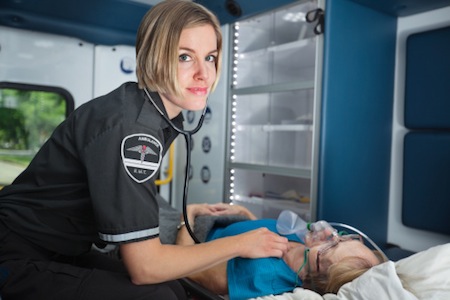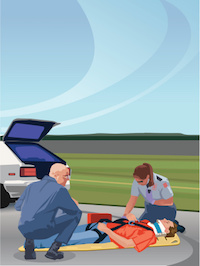- Level 6 Natural Listening
-
Street Food
Views #1512 | Intermediate (B1) -
Bustling Bangkok
Views #1511 | Intermediate (B1) -
Expiration Dates
Views #1494 | Intermediate (B2) -
Throwing Things Out
Views #1493 | Intermediate (B2) -
Giving Gifts
Views #1472 | Intermediate (B1) -
Black Friday
Views #1471 | Intermediate (B1) -
Body Idioms - Part 2 | Part 1
Views #1466 | Intermediate (B2) -
Body Idioms - Part 1 | Part 2
Views #1465 | Intermediate (B2) -
Brain Drain
Views #1456 | Intermediate (B2) -
Out of Country
Views #1455 | Intermediate (B2) -
Brush and Shave
Views #1400 | Intermediate B2 -
Shower Schedule
Views #1399 | Intermediate B2 -
Power of Personality
Views #1398 | Intermediate B2 -
Living for Today
Views #1376 | Intermediate B2 -
Bucket List
Views #1375 | Intermediate B2 -
Dream Time
Views #1374 | Intermediate B2 -
The Medic
Views #1370 | Intermediate B1 -
Women in Uniform
Views #1369 | Intermediate B2 -
Her Do-over
Views #1366 | Intermediate B1 -
His Do-over
Views #1365 | Intermediate B1 -
New York Sports
Views #1364 | Intermediate B2 -
New York Tips
Views #1363 | Intermediate B2 -
His Life in Japan
Views #1360 | Intermediate B2 -
Her Life in Japan
Views #1359 | Intermediate B2 -
Baby on Board
Views #1356 | Intermediate B2 -
Proud Papa
Views #1355 | Intermediate B2 -
In the Club
Views #1450 | Intermediate (B2) -
In the Tropics
Views #1349 | Intermediate (B2) -
Single's Day
Views #1348 | Intermediate (B1) -
Commercial Christmas
Views #1347 | Intermediate (B1) -
Dialed In vs Unplugged
Views #1342 | Intermediate (B2) -
E-Mail Habits
Views #1341 | Intermediate (B2) -
Life Without Cars
Views #1340 | Intermediate (B2) -
The Stubborn Recovery
Views #1322 | Intermediate (B2) -
Car Smash Ups
Views #1321 | Intermediate (B2) -
Shockingly Different
Views #1320 | Intermediate (B2) -
First Memories of Canada
Views #1319 | Intermediate (B2) -
Homegrown Foreigner
Views #1310 | Intermediate (B2)
Notice: Did you know you can get an instant definition of any word on this page, just by double-clicking on it?
Try it now! Double-click any word on page to see the definition!

The Medic
Meg talks about being a medic in the military and what medics do to help people.
Todd: So Meg, you are talking about being in the military, and you said you were a medic. Can you explain what that is?
Meg: Yeah. So a medic, which now I believe is called health care specialist, is – I always say it's kind of similar to being like a paramedic where it's not a full nurse job. I think nurses have more training like in civilian side nurses, but similar to paramedic where you have certain, like, minor procedures that you're trained to do and high-level things than just an EMT like doing IVs and giving shots and stitches and things like that.
 And you're trained – because it's the military, you're especially trained for emergency situations, and how to treat someone who has maybe some serious life-threatening wounds. So that's a medic.
And you're trained – because it's the military, you're especially trained for emergency situations, and how to treat someone who has maybe some serious life-threatening wounds. So that's a medic.
Todd: Wow. That sounds like a really difficult job. I mean, it's not your typical, just soldier job. You must have had a lot of schooling and education.
Meg: I had – well, everyone goes through the initial, about two and a half months like basic training. And that's more kind of basic combat skills and physical training that kind of thing. And then I had four months past that to train to be a medic. So we went through like emergency medical technician course just like civilian side. I got certified with that. And then we had additional training for the military skills like IVs and emergency procedures, that kind of thing.
Todd: Right. Can you explain what IV is?
Meg: IV is an intravenous – like getting fluids into your body. So if you've been injured and you've lost a lot of blood or maybe you're dehydrated and you need some fluid in your body quickly, then we stick a needle into your vein and then the fluids go in. And the needle comes back out but a little tube stays in. And then you can get fluids quickly that way.
Todd: So anybody that's been to the doctor knows that's always kind of the anxious moment when the nurse or the person who's going to stick the needle in. Were you good at doing that?
Meg: So once I learned how to do it, I think I was pretty good. And I actually enjoyed doing it, not in a creepy way but, you know, it was – I guess, because I was decent at it that it was a part of my job that I enjoyed.
But for myself, before we went through that training, I actually became dehydrated and needed to get an IV myself. And I was terrified because I really hadn't had that before in my life. And so, the nurse was going to come, you know, put the needle in my arm and I was like, "No, isn't there another? I'll just drink a lot of water." And she was saying, "Aren't you going to be a medic." And I was like, "Oh, I haven't trained yet. Don't do it." So yeah.
Todd: Oh, that's cool. Yeah. I was recently in the hospital and they had me strapped up for both blood and for the water, the intravenous drip. And it's annoying because you can't really move, like if you want to get up and walk anywhere, you're strapped with all these tubes. And it's not very convenient.
Meg: Yeah, yeah. Or at least you have to careful. When I was getting the IV, I didn't know that the needle doesn't stay in your arm. Now, for some things, it does. For blood, maybe it's different, I'm not sure. But yeah, so I was trying to be so careful too but you still want it to go well so you don't want to move very much.
Todd: Right. So what percentage of people would you say freak out when they get the needle?
Meg: Probably 90% or 95%.
Todd: Oh really?
Meg: Yeah. Even, you know, tough Army guys would come in and be – and they'd be like, "Oh, I'm fine. I'm fine in a bit." "Well, we need to give you an IV." And they'd be like, "Oh…"
Todd: Right. Yeah. Nobody likes that.
Meg: No.
Todd: So you transitioned. You were in the medical profession and then you moved to education. Why did you leave the medical profession for education?
Meg: Yeah. That's interesting because I became a medic in the military because I thought after I – when I could continue college that I would be a nurse or a doctor. But my time serving as a medic helped me learn that that was not what I wanted to do for my career after all.
So I definitely am glad that I had those skills and the things that I learned and was able to experience. But I had – English had kind of been on the back burner. And so then I said, "Okay, let me revisit this," and it led to English education.
Todd: Wow. Have you ever thought about being like an English specialist for people in the medical fields like teaching doctors and nurses?
Meg: I guess I haven't thought about that specifically. Sometimes I thought about going back to military. They do have something like English schools in the military. And so, I guess that would be related. Also it could be – yeah, so that would be interesting. Something to think about.
paramedic

A health care specialist is like being a paramedic.
A paramedic is a health specialist who gives emergency aid to people outside of the hospital. Notice the following:
- Paramedics often work in an ambulance.
- The paramedic helped the injured man.
minor procedure

You are trained to do minor procedures.
A minor procedure is a small operation or quick treatment to a health issue. Notice the following:
- I went to the hospital for a minor procedure. Nothing serious.
- She had a minor procedure done for her knee.
dehydrated

If you are injured, maybe you become dehydrated.
When you are dehydrated, your body needs fluids and water.
- If you run in the sun, you can get dehydrated.
- Dehydration is a serious health concern.
strapped up

They had me strapped up to tubes.
A person on a hospital bed can be strapped up by having lots of tubes and monitors attached to them.
- He was strapped up to a heart monitor.
- He was strapped to the bed, so he could not get out of bed.
they'd be like

They'd be like, "Oh, I'm fine."
When we say 'They'd be like' we mean 'they would say'. Notice the following:
- I told my story and they'd be like, 'No Way!'
- I would get mad and my mom would be like, 'Go to your room!'
on the back burner

English had kind of been on the back burner.
When something is on the back burner, it is postponed for later. We put food on the back burner to keep it warm. Notice the following:
- I need to save money, so college is on the back burner now.
- They plan to get married but it is currently on the back burner.
Vocabulary Quiz
strapped • be like • back burner



Bình luận (0)